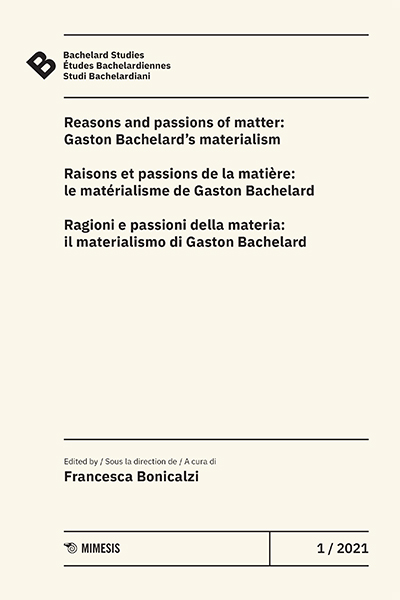Abstract
Modern physics does not deal with phenomena given simply to perceptual experience and understood through a philosophical phenomenology. Rather, through its technical-experimental practices, it is involved in the very production of phenomena. Indeed, Gaston Bachelard characterizes modern physics as a phénoménotechnique. This implies that the “matter” of which Bachelard speaks – namely, the theoretical elaboration of something that emerges from experimental practices and mathematical practices – cannot be comprehended from the perspective of a history of science articulated as a history of ideas or mere concepts. Bachelardian matter cannot be framed within a history of “the idea of matter” or within a history of philosophical conceptions of matter. The history of experimental, technical, and mathematical practices, on which modern and contemporary physics is based, must also be taken into account. Bachelard’s philosophy clarifies a whole series of conclusions on the nature (and naturing) of “matter” to be drawn from contemporary physics.
Keywords: Bachelard, Phenomenotecnique, Phenomenology, Heidegger, Matter, Creation

